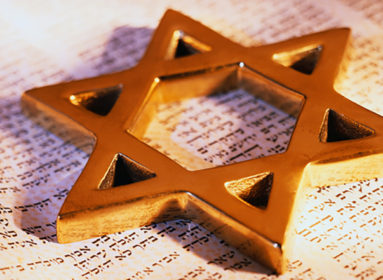
By Shlomo Riskin
“But the Lord hardened the heart of Pharaoh” (Ex. 9:12)
One of the more difficult theological problems raised in the book of Exodus is precisely this verse, in which the Bible declares that it was God who hardened Pharaoh’s heart to be impervious to the cries of his forced laborers.
To be sure, during the first five plagues, it was Pharaoh himself who was responsible for his stubborn cruelty, who hardened his own heart. Now that we have come to the sixth plague of boils, how can we blame the Egyptian monarch if it was God who prevented him from freeing his Hebrew slaves?!
Such conduct on the part of the Creator of the Universe goes against those very standards by which the world and humanity first came into being. “And God said, Let us make a human being in our image and like our likeness…” (Gen. 1:26), to which Seforno comments that only the human being has untrammeled and independent freedom of moral choice. God is volitional – He cannot, by definition, choose evil, as God is consummate goodness. That means that human beings are created with the capacity to choose to do even that which God would not have wanted them to do.
So how can it be that God hardened the heart of Pharaoh, preventing him from hearkening to God, Moses and the Hebrews, preventing him from repentance? Our Biblical text reiterates God’s hardening of Pharaoh’s heart four more times, with reference to the plagues of hail, locusts, darkness, and death of the first-born. How can God hold Pharaoh responsible for these crime when it was God who prevented Pharaoh from repenting?
Seforno does not believe that God prevented Pharaoh from repenting: “…when God may He be blessed, says, I shall harden the heart of Pharaoh, it merely means that (Pharaoh) will be strengthened by the suffering of the plagues, and not release the Hebrews because of his fear of the plagues….” (ad loc. 7:3)
Seforno insists that in hardening Pharaoh’s heart from “running scared” and freeing the Hebrews, God was only enhancing Pharaoh’s freedom to make moral decisions; God was removing the mayhem being wrought upon Egyptian society by the plagues from becoming the cardinal reason for his sending the Hebrews out, which would have made the decision not at all a matter of morality but rather an issue of political expediency.
On the basis of this commentary, the entire logic of the plagues becomes much clearer. During the second plague of frogs, Moses explains that the reason for the horrific discomfiture, the turn-around of the Nile from being a life-giving god of Egypt into becoming a macabre and ridiculous repository of blood and frogs is “in order that you may know that there is none like the Lord (YHVH) our God” (Ex. 8:6); and the fourth plague of swarms of insects is “in order that you know that I am the Lord (YHVH) in the midst of the land” (Ex. 8:18).
In the beginning of our Biblical portion of Va’Era, God’s opening words are: “I am the Lord YHVH; I appeared to Abraham, Isaac and Jacob as El Shaddai, powerful God of omnipotence, but with My Name YHVH I did not make Myself known to them. Therefore say to the Israelites: I am YHVH; I shall take you out from under the burdens of Egypt…” (Ex 6:2,3,6).
What is in a Name? It is the most understandable partial definition of a being whose very essence insists that “he” will ultimately remain incomprehensible to mortal humans. The Hebrew letters of YHVH, in accordance with their vocalization, spell out the very “He will effectuate”; given the content, it means that He (God) will bring about redemption – freedom for the Israelites and ultimately freedom and redemption for all humanity. It is in the future tense because God acts in history and it is open-ended, because the God of history acts in concert with Israel and the nations, and is thereby “limited” by their actions or lack thereof. The root noun HVH, as in ahavah, means love, as our Talmudic Sages understood when they defined this particular ineffable Name of God (the Tetragrammaton) as referring to the God of love and compassion (Hebrew-midat ha’rahamim, Ex: 34:6, Rashi ad loc.). Thus, the God who loves humanity will turn His back, as it were, upon those who exploit, enslave and murder innocent human beings.
This is the lesson that God wanted to teach Pharaoh, totalitarian ruler of the most powerful nation at that time. God, YHVH, who loves His creation, will act in history to free all slaves and redeem all who are oppressed. Hence, it was crucial that God harden Pharaoh’s heart to free him from succumbing to pressure from the plagues; Pharaoh had to free the Israelites only because he recognized the ultimate authority of the God, whose universal laws of freedom must govern the world.








 Southern New England Jewish Ledger
Southern New England Jewish Ledger









